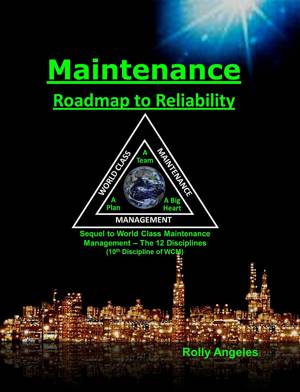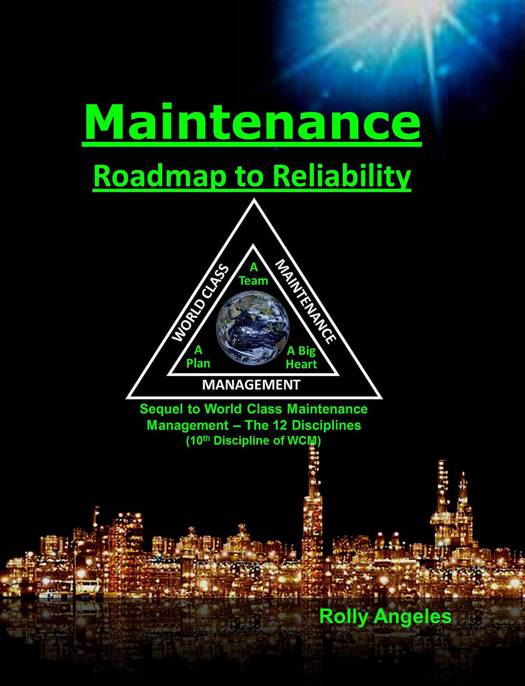
- Retrait gratuit dans votre magasin Club
- 7.000.000 titres dans notre catalogue
- Payer en toute sécurité
- Toujours un magasin près de chez vous
- Retrait gratuit dans votre magasin Club
- 7.000.0000 titres dans notre catalogue
- Payer en toute sécurité
- Toujours un magasin près de chez vous
Description
This is volume 2 on a series of book I wrote on World Class Maintenance Management - The 12 Disciplines. This book depicts the life and struggle of maintenance in seeking better ways and means to improve the equipment and assets' Reliability. The author shares his experience on how to achieve such a feat. Transitioning from a reactive to a proactive maintenance stage is not an easy task, but it is not also an impossible task. Some highlights of this book include:
- JIPM (Japan Institute of Plant Maintenance) Criteria on Planned Maintenance
- Actual Report submitted to JIPM on TPM Planned Maintenance
- Actual Planned Maintenance Results
- Assessment Questionnaire on the 12 Disciplines on World Class Maintenance
- Contains quizzes at the end of each chapter to gauge the comprehension of the reader
- Detailed explanation on the Preparatory Phase of Planned Maintenance
- Detailed explanation on the 4 Phases of Planned Maintenance
- Survey on the Top 10 Problems on Preventive Maintenance
- Important Lessons on Implementing TPM and more.
The meaning of the word maintains simply to preserve our equipment and assets. And we can only preserve our assets if maintenance is equipped with the right knowledge on how to perform their jobs right the first time around. I have written this book to reach out to industries in search of discovering ways to improve not only their equipment and assets but also their maintenance human resources. Remember that maintenance is not a department; it is not a function or any organization, but rather maintenance is humble and down-to-earth human being; hence, let us provide them with the respect that they truly deserve because that is all they ask for. The message of this book is simple and straightforward. There is no better way to start the journey to Reliability than to go back to the basics and address these very small problems in our plant. Big problems, unplanned breakdowns, and catastrophic failures are just an accumulation of small problems that have always been ignored in the first place. Maintenance is always shared responsibility for operators and maintenance working together in complete harmony. It will be difficult for maintenance to transition from a reactive to a proactive mode if operators will not be involved in doing maintenance since maintenance is always shared responsibility for operators and maintenance
This book explains how to proceed with the 4 Phases of Planned Maintenance and how to integrate RCM into the TPM process. It also covers the importance of Autonomous Maintenance and Spare Parts Management which is believed to be the missing link theory on any reliability and maintenance strategy. Chapter 11 is a classic case study on what maintenance can achieve if there is a clear roadmap to follow. The last chapter states that maintenance is just human like you and me. What is important is not to blame them for every failure in the plant but for both operations and maintenance to work together on the problem. Many industries are looking for a structured and detailed approach to improving their maintenance asset and resources. This book provides that level of information. Each chapter begins with a quote on the wisdom of maintenance and will be a quiz for you to answer at the end of each chapter.
The author shares his experience on how to achieve such a feat. Transitioning from a reactive to a proactive maintenance stage is not an easy task, but it is not also an impossible task. The author believes that the key to everything is educating the maintenance people on what maintenance is all about
Spécifications
Parties prenantes
- Auteur(s) :
- Editeur:
Contenu
- Langue:
- Anglais
Caractéristiques
- EAN:
- 9798201897734
- Date de parution :
- 06-06-21
- Format:
- Ebook
- Protection digitale:
- /
- Format numérique:
- ePub

Les avis
Nous publions uniquement les avis qui respectent les conditions requises. Consultez nos conditions pour les avis.






